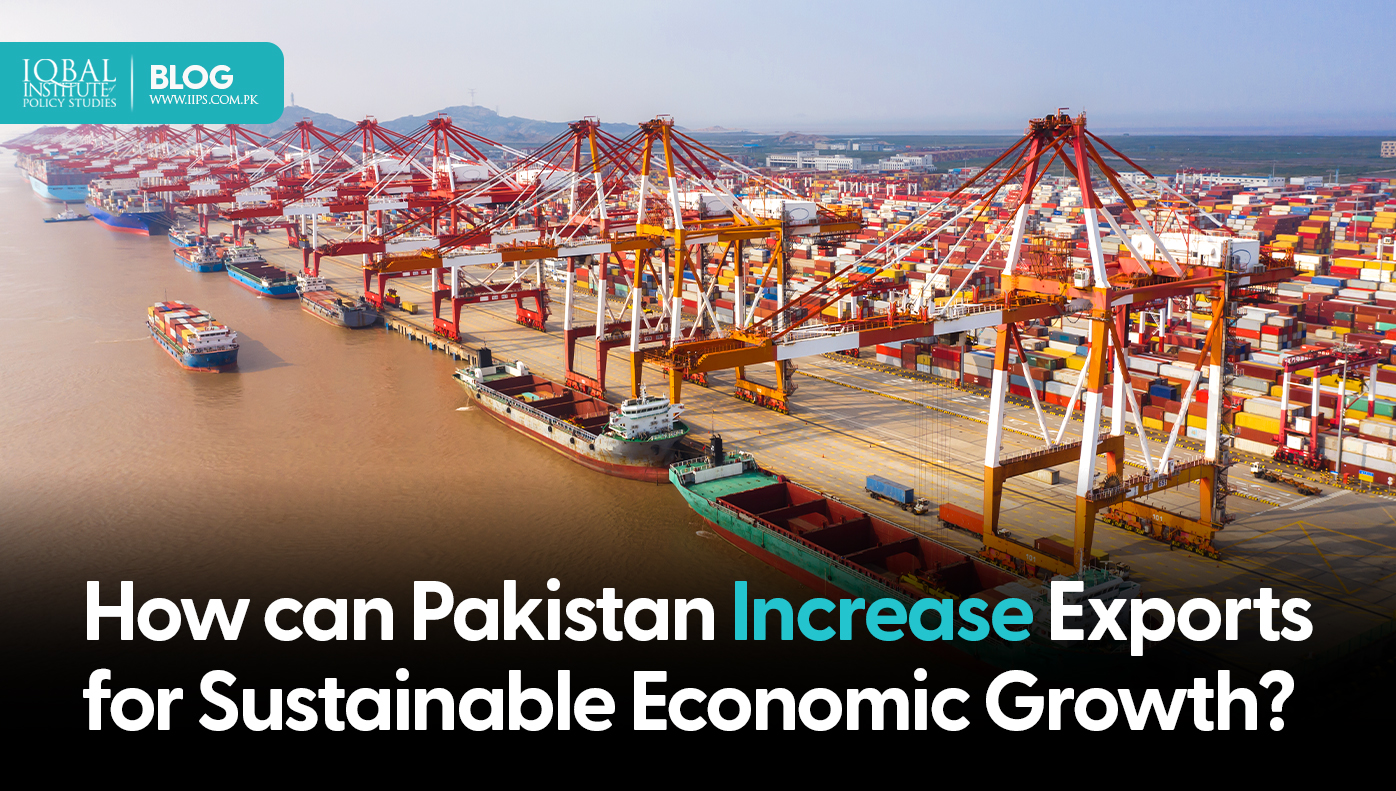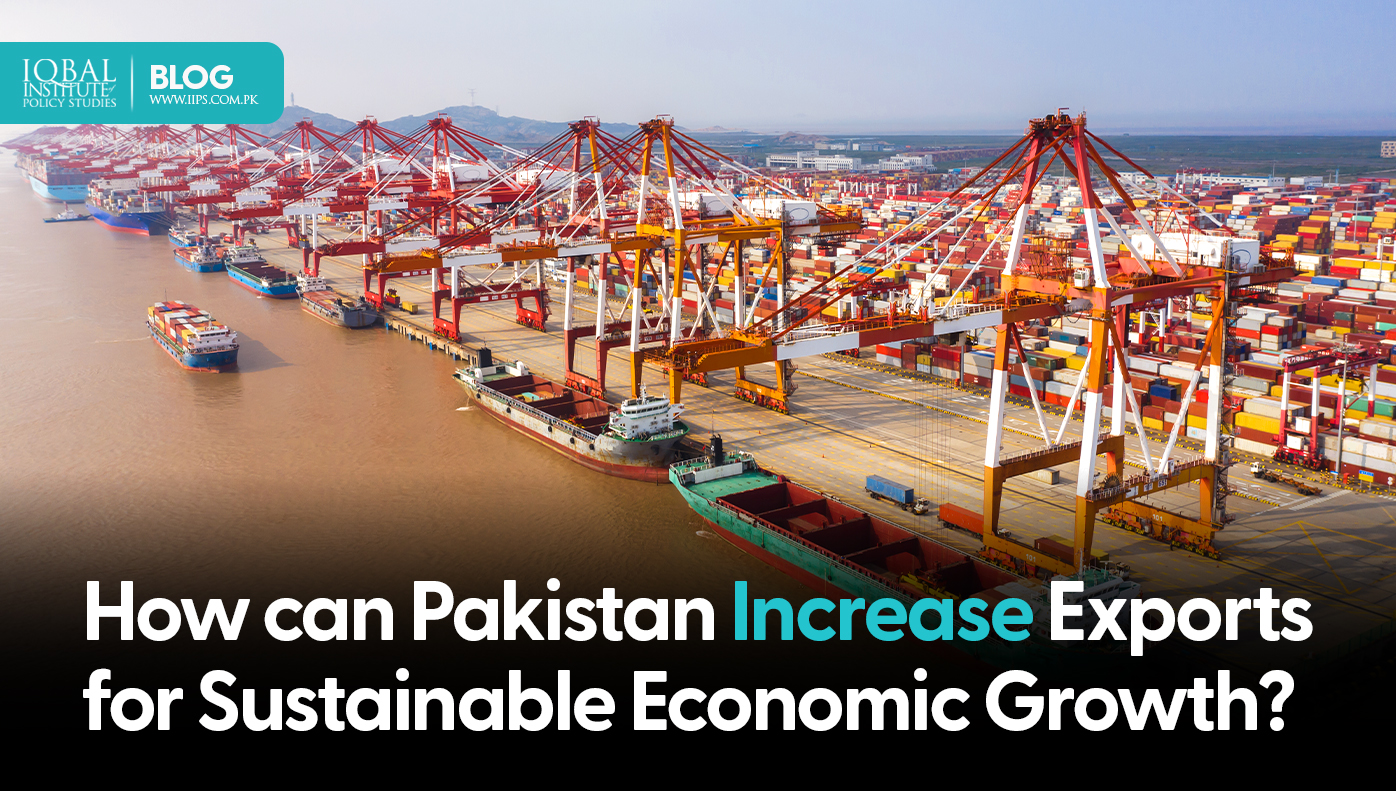
Pakistan’s economic growth indicates that the country needs higher exports. They generate foreign income to finance imports, and service debt, stabilise their currency, and overcome the persistent problem of the balance of payment deficit. In addition, a country’s export should be in line with market trends and quality to compete in the market and be on the internationally acceptable standards.
In the case of Pakistan, exports are in short supply due to low investment and strong domestic demand. Due to these two factors, imports increase more than exports, resulting in a trade deficit. Pakistan needs to increase private investment and export to sustain economic growth. However, other factors impact Pakistan’s exports are mentioned below:
- High tariff structure.
- Inconsistent growth trends.
- Low penetration in global markets.
- Lack of resilient infrastructure and improved technologies.
Furthermore, Pakistan’s export growth is also handicapped by the government’s irrational policies and complex incentives offered to the industry. However, other Asian countries have managed development by pursuing export-led-growth strategies with high saving and investment rates, specialising in competitive advantage and rapid industrialisation.
But the question remains: How can Pakistan increase exports for sustainable economic growth?
We are keen on research and policy studies to find the solutions to these economic issues in Pakistan. IIPS Iqbal Institute of Policy Studies complied with a recommendation to gain sustainable growth by increasing an economy’s exports.
Challenging times demand innovative thinking and out-of-the-box solutions.
Pakistan must focus on capitalising on exportable services and products requiring minimal infrastructure and investments. For instance, software and I.T. solutions demand has been increasing globally. Establishing a software house is more accessible than setting up an industrial unit. According to analysts, the global Software Engineering market is developed at an 11.72% CAGR between 2016-2022. We should credit the software market’s growth to the growing demand for automation from various industries to enhance their program manufacturing processes and design quality.
According to reports, Pakistan’s I.T. exports increased by 44% to USD 379 million during the first quarter of 2020-21. There is potential to grow more and explore avenues to enhance software export in Pakistan. Indeed, Pakistan’s I.T. sector can expand to contribute USD 1 billion annually with the support of the government. The Trade Development Authority of Pakistan should notice this fast-changing fact and leverage artificial intelligence or Big Data to assist exports in harnessing the potential of online marketing platforms (world bank, I.M.F., UNDP).
improving export competitiveness in the global market is essential for increasing Pakistan’s exports
A pattern shift is needed to incentivise industries to move from low-value to high-value products. For example, the international ratio for MMF to Cotton is 70:30, while Pakistan’s composition is 30:70, owing to a lack of prioritisation by the government. Reforms should address this issue to enhance export potential exponentially. Furthermore, another key measure to make exports competitive is to ease import restrictions that enable industries to purchase raw materials at fair prices and sell the final products intentionally of a high standard with a competitive price tag.
Empowering S.M.E.s
Pakistan’s economy is composed of almost 3.3 million Small and Medium Enterprises. This enterprise includes services providers, manufacturing units and startups. In addition, S.M.E.s contribute over 30% of Pakistan’s G.D.P., and approximately 25% make up export generation. In this sense, we need policies encouraging S.M.E.s and allowing them to reach their true potential. Therefore, offering access to finances, readily available subsidised credit, and lower interest rate loans, can be a reasonable starting point to unleash S.M.E.’s potential. Public procurement can be achieved through economic and social benefits by ensuring that government supply chains include S.M.E.s. These benefits range from creating skilled jobs and increased domestic tax revenue to more robust domestic economic growth. Well-planned and well-designed public procurement policies can also catalyse technical advancement and incline margins with overall productivity.
Simplify regulations related to exports
The government should simplify export regulations, such as bulky bureaucratic procedures that adversely discourage new exporters. Similarly, the government should focus on improving information collection and dissemination about foreign markets and requirements for exporting.
Entrepreneurship and Workforce Development
To make Pakistani products globally competitive, we must improve domestic goods’ productivity and technological content and motivate to foster innovation. For doing so, we need a comprehensive focus on encouraging entrepreneurship. A National Human Development Report has highlighted the professional unemployment level of 20% of graduates in Pakistan. Besides, the unemployment level remains high, representing a large proportion of the educated and unemployed population.
In this matter, Pakistan must prioritise encouragement to innovate for better quality diverse products and services. Although, entrepreneurship creates a beneficial cycle of prosperity as the people get employment and create value for society and the economy.
Conclusion
Pakistan has great potential to compete in the international market with its products. Still, due to a lack of investment and government policies, competing in a global market is becoming difficult. In this regard, the Pakistan government should represent a low tariff structure, flexible policy formulation, and promote SMEs and entrepreneurship to incline their exports for sustainable growth.


Leave a Reply